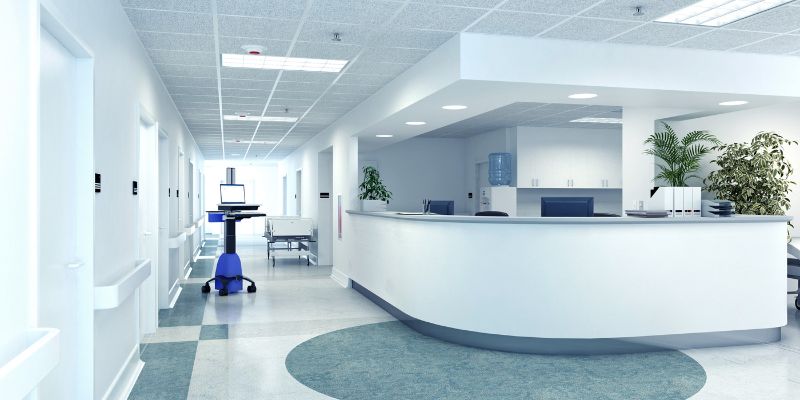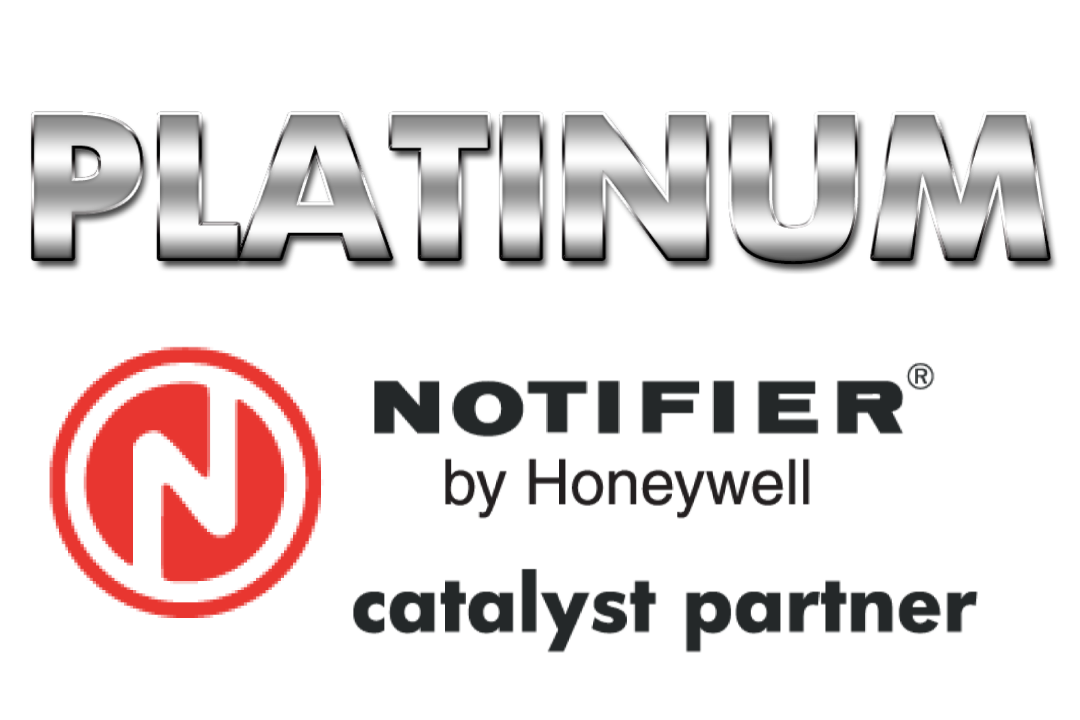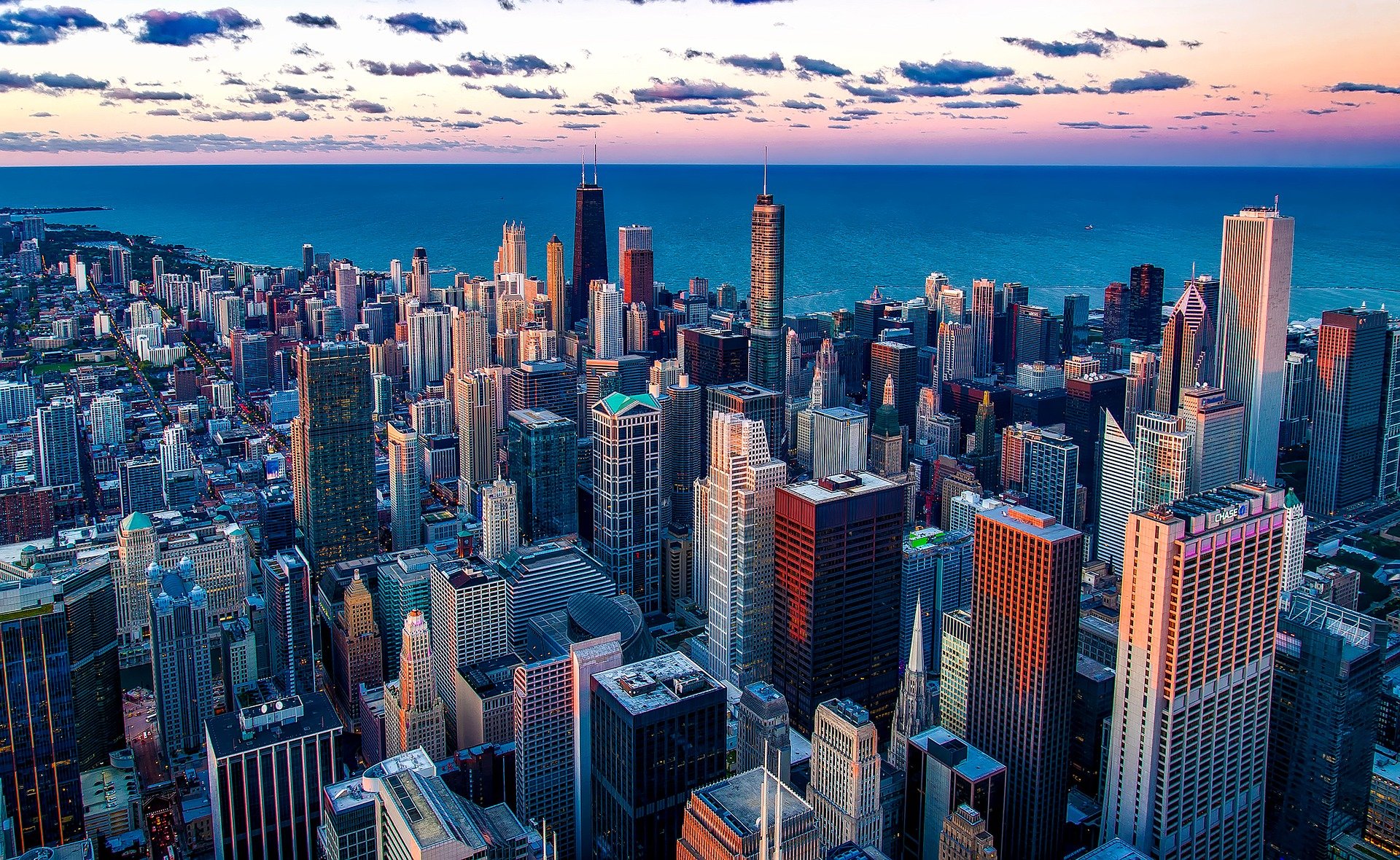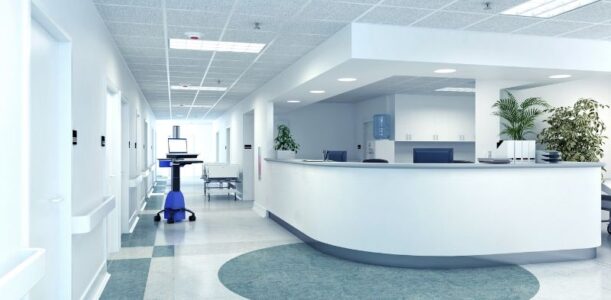
Maintaining code compliance with all fire and life safety regulations poses unique challenges to healthcare facilities where the number one focus must be to protect the lives of patients, visitors, staff, and physicians.
Get A Quote
Challenges To Safety Code Compliance In Healthcare
The task of ensuring building code compliance in a healthcare facility often falls to a facility manager who is already overloaded with many operational duties. Maintaining compliance with fire and life safety code requirements is a big responsibility that cannot be overlooked and one that is constantly changing. Codes and standards are continually evaluated and updated to reflect new standards and new technologies that are introduced.
Fire and life safety technology is continually evolving, with many systems operating with wireless technology, accommodating hundreds or thousands of sensors and detection points, and even smoke alarms that test themselves, such as NOTIFIER self-testing detectors. In addition to continually evolving code regulations and introductions of new technology, changes can also occur in how authorities apply regulations, such as to issues that were once not a problem but must now be addressed.
In spite of these challenges, code compliance with all fire and safety regulations is a must in all healthcare facilities and can pose serious problems for facilities that fall short of compliance. The worst-case scenario is a loss of life due to a fire or other emergency. Additional problems that could occur from failure to maintain code compliance could cause poor public relations and may also jeopardize types of funding for healthcare facilities.
Facility managers can reduce the stress of maintaining code compliance and safety for their building by having a proper Life Safety Assessment performed on a regular basis.
Life Safety Assessments for Healthcare Facilities
Healthcare facilities are continually changing and evolving as the needs of patients and healthcare delivery change, the needs of staff change, and new technology is introduced for healthcare as well as building safety. A building that was constructed more than 30 years ago is not going to have the same features as a newly constructed facility. Healthcare facilities require a life safety assessment performed on a regular basis, which depends upon the services performed, and the size and age of the facility.
A small medical facility that has not had many changes may only require a life safety assessment to be performed once every few years, although a large teaching hospital that utilizes new and upcoming technology, large teaching staff, and a student body will continually evolve and may require a life safety assessment to be performed at least annually.
What Is Involved in a Life Safety Assessment?
The life safety assessment should be unbiased and performed by an individual outside of the organization. The assessor should have in-depth knowledge of all commercial fire and life safety code requirements, including local, state, and federal safety regulations, as well as building code regulations related to safety compliance. The fire safety company should have experience in performing life safety assessments for medical facilities and be knowledgeable about all building code requirements, including those issued by the Centers for Medicare & Medicaid Services (CMS).
The life safety assessment drives the life safety plans to be created and gives detail about all compliance aspects and locations, including smoke barriers, fire barriers, hazardous areas, exits, notification systems, and more. Large hospitals will require elevator management such as elevator recall which brings all elevators back to a floor of safety and puts them out of service in the case of fire. Audible notification can direct people to the proper exit location, and visual strobes provide alerts to the hearing impaired and are required in certain areas. Special care must be taken in hospitals to ensure patient safety during evacuation and relocation if required.
Facility managers can ensure that their medical facility is code compliant by enlisting the help of an experienced fire safety consultant to perform a life safety assessment of the premises.
High Rise Security Systems, HRSS, with SMG Security Holdings, SMG is a leading commercial fire and life safety system provider ensuring the safety and security of commercial properties in and around Chicago, including healthcare facilities and hospitals.
HRSS/SMG is recognized as a leader in the fire safety industry with decades of experience and comprehensive services. We offer high-quality, UL-listed fire safety equipment, full system design with CAD software to ensure code compliance, and the proper location of all equipment. Contact us with any questions on maintaining safety and code compliance for your healthcare facility.



